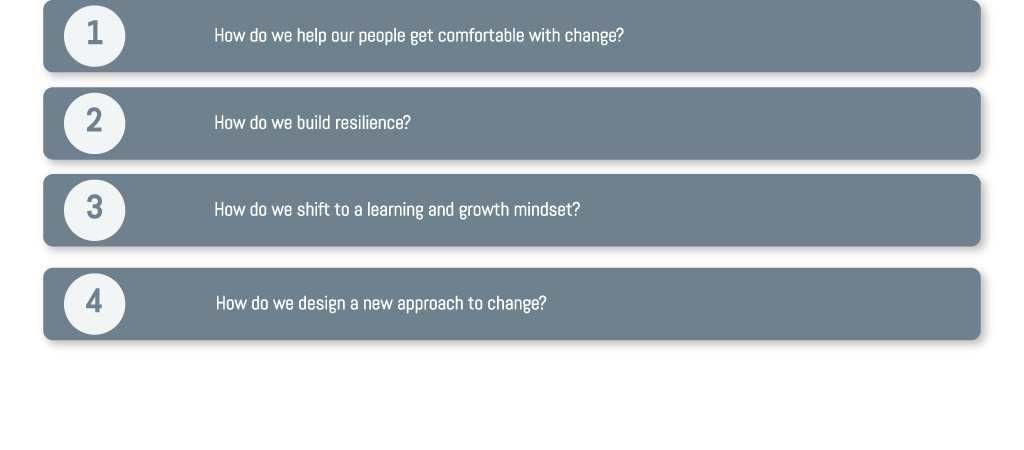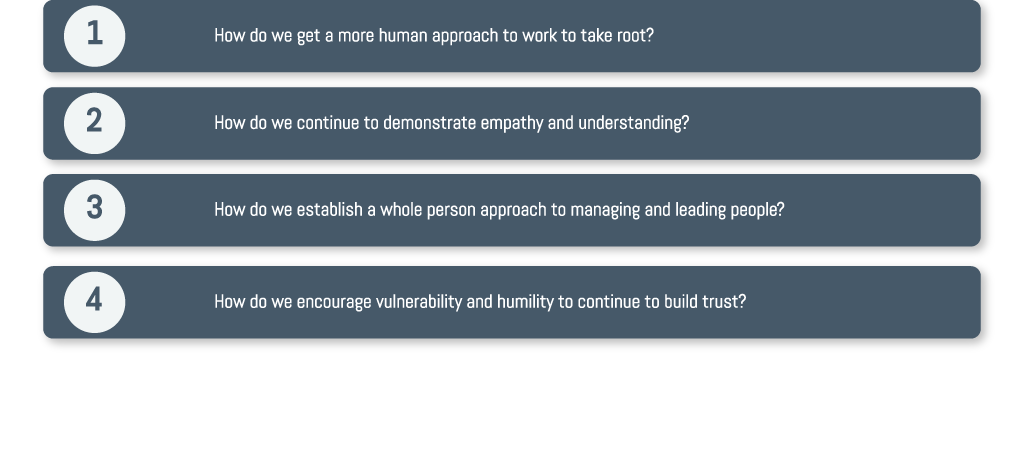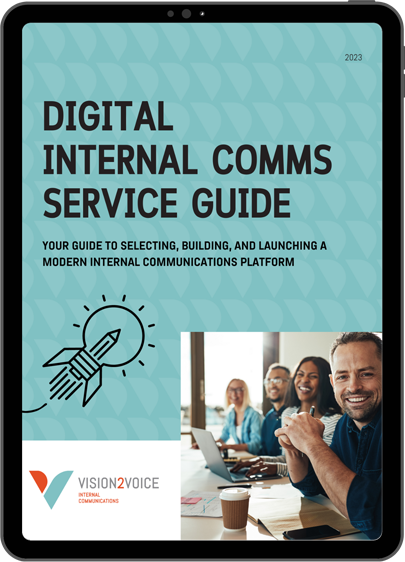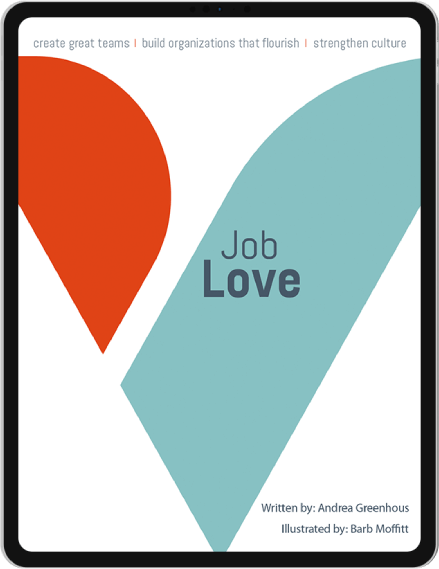
The pandemic has changed us. Never again will we take for granted the freedom of being able to travel, the joy of celebrating special occasions with our families, the excitement of attending a concert or sporting event, or the wonderful feeling of hugging a friend. But in the post-pandemic world, we’ll also remember having found pleasure in slowing down, baking bread, playing board games, and walking our dogs.
The pandemic hasn’t only changed us personally. It has fundamentally changed the world of work. Never again will we take for granted the banter that happens in an in-person meeting, the ability to meet and chat over a cup of coffee in an inviting coffee shop, or the freedom of feeling safe while working shoulder to shoulder with a colleague – whether that is over a patient, next to a whiteboard, or while building a new home. But when the pandemic is over, we’ll also remember having had the ability to spend more time cooking meals, walking our dogs at lunch, or the ability to do heads-down work without being interrupted by colleagues.
I am a shamelessly positive person and I believe the pandemic provides us with an incredible opportunity to rethink and redesign the world of work and the employee experience. Getting to this place will not be easy. It requires an understanding of the major factors at play and an intentional approach to realizing the potential we have before us. As I started to write this blog, I realized that there was no way I could tackle all the changes and trends in just one blog and include solutions for building a better future.
Yes! Here comes another series. 😀
I see four main factors in my research that will be at play as we emerge from the pandemic. These factors are not new, but the pandemic has highlighted just how important they are if organizations and people are to thrive.
The Four Shifts Shaping the Future of Work
Shift #1 – Work is not a place (but for others, it is)
One day, many of us were commuting to an office and the next day the office was our kitchen table. Because we had to make this change very quickly, we learned that we are more adaptable than we thought., and that productivity wouldn’t take a nosedive – in fact, in many cases, productivity increased. While everyone’s work from home experience was different, many people realized that there were many benefits of remote work.
The result of this massive unplanned experiment is that many organizations are developing more flexible work arrangements that will allow people to work remotely for a certain amount of time. We are entering the era of hybrid work. This concept is not as easy as it sounds and there are many questions employers need to answer if they are going to make it work for their people and their organization.
At the same time, there is a massive group of people that simply can’t work remotely and in all the talk about businesses trending towards remote work, these groups cannot be ignored. The bank teller, the nurse, the manufacturing supervisor, the retail clerk, and the construction foreman have all been working throughout this pandemic on the front line, and they will continue to work on-site after the pandemic, too.
For a successful remote-work model, organizations should ask these questions:
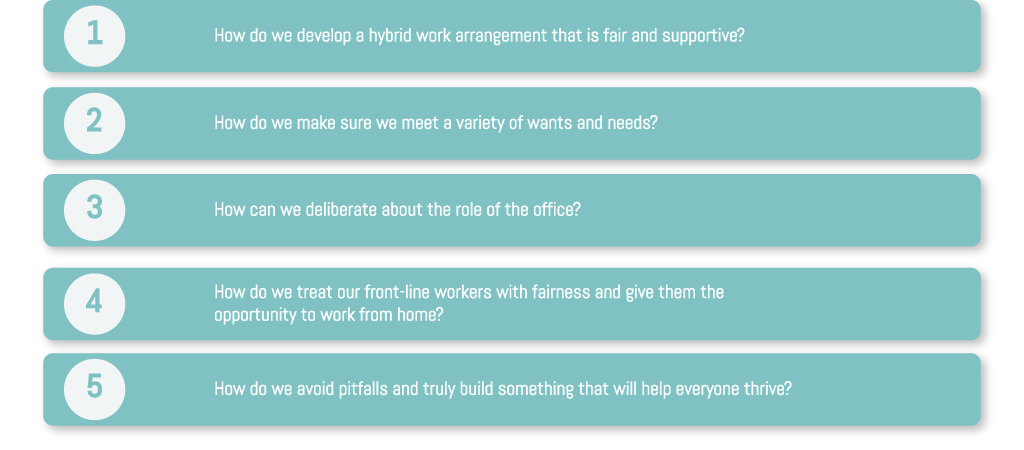
Shift #2 – Change is accelerating
The pandemic has highlighted just how volatile the world can be and how quickly life can change. The pace of change is accelerating, and the world is becoming more complex. Being ready for the next disruption is essential.
For years my company helped organizations with change and transformation initiatives. We worked on projects supporting technology change, culture change or some other type of organizational change. Change was an uncomfortable and difficult process that wasn’t familiar. Organizations weren’t set up to manage change effectively and even worse – their people weren’t effectively supported through the process of the change.
For organizations and people to thrive in the future, they will have no choice but to be comfortable with change. This means that organizations need to cultivate a learning and growth mindset, they need the systems and processes in place to help people through change, and then they need to do a much better job of communicating with employees. A new approach to internal communications will help.
Organizations should ask these questions:
Shift #3 – Work is human
Dogs barking, kids and cats crawling across people’s laps, sketchy internet connections – the pandemic quite literally brought us into each other’s homes via video conference. Whether accidentally or intentionally, we became more aware of our coworkers’ and leaders’ lives outside of work. These experiences have brought a more human element to work.
I believe that the collective challenge of overcoming the pandemic has also forced us to rethink the traditional separation between who we are at work and who we are the rest of the time. When working from home, it is inevitable that other parts of our lives will begin to trickle in. Whether it’s still having our hair in a ponytail after a lunchtime run, one colleague pitching in to help another help her children navigate online schooling, or spotting a family picture in the background on a Zoom call – work has become much more personal.
Organizations should ask these questions:
Shift #4 – Belonging and connection is vital
The pandemic laid bare the inequities in the workplace and just how many people experience work differently. It is no secret that women have borne the brunt of the pandemic at work and at home, and they have left the workplace in droves because of it. At the same time, the murder of George Floyd was a shocking reminder of the work that needs to be done in our society, and the Black Lives Matter movement became a rallying cry to end racial injustice in our world. Finally, the pandemic has exacerbated mental health issues as many experienced unrelenting stress, worry, uncertainty, loneliness, and isolation.
Employers have a significant role to play in ending inequality, ensuring racial justice, and supporting the mental and physical well-being of their workers. This is not just the best thing to do for the bottom line; employers have a moral obligation to their people – simply put it’s the right thing to do. The need to build a workplace where fairness, connection, belonging, and inclusiveness are all equally felt by every person is critical.
Organizations need to ask questions like:
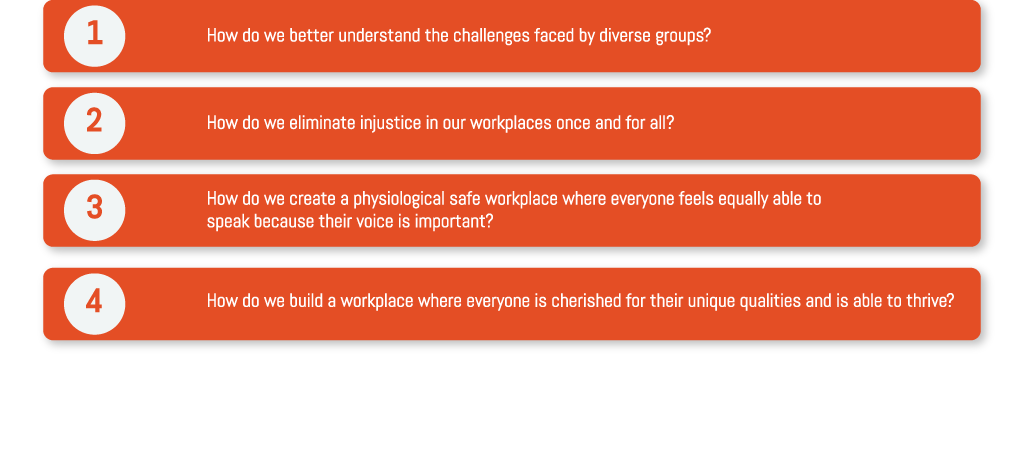
Stick with me over the next four blogs as we explore and dive deep into each shift so that we can provide our team a smooth transition as we explore the future of work. In the meantime, if these are questions being asked in your organization, give us a call. We can help.

